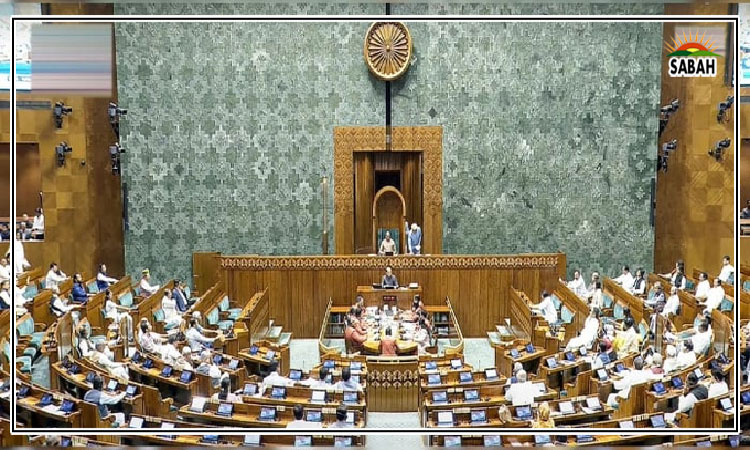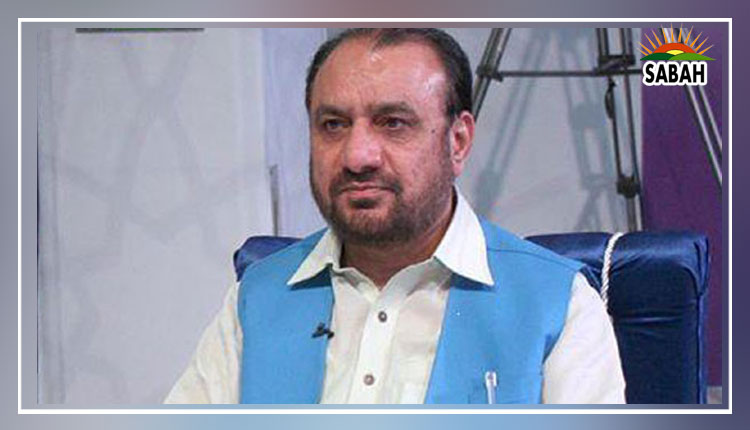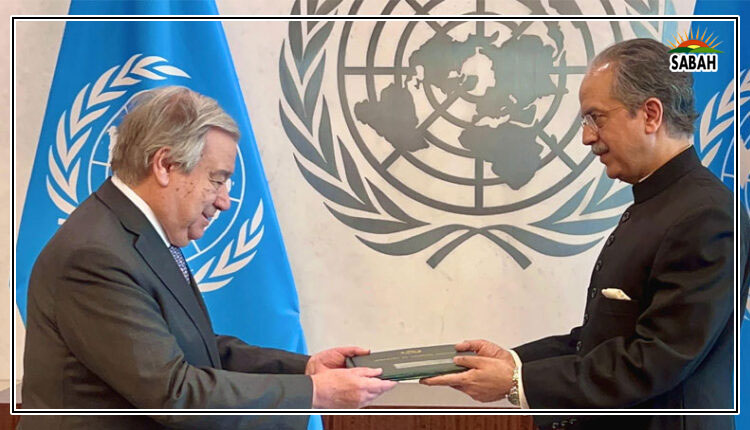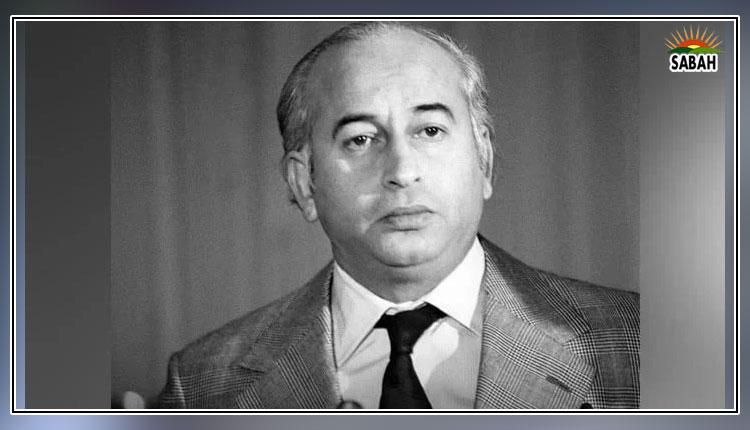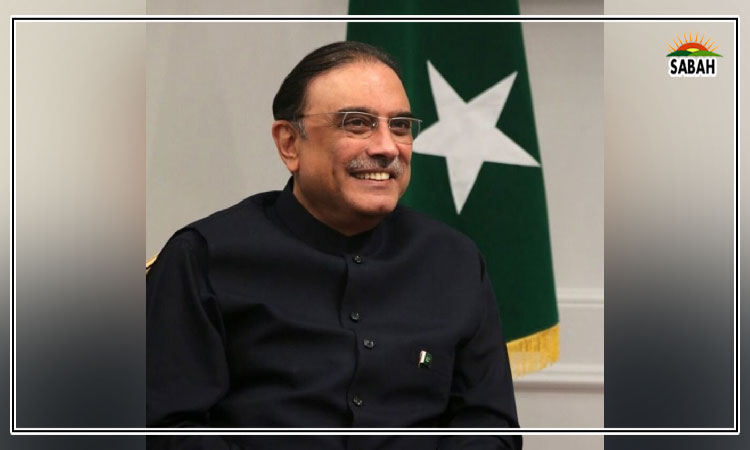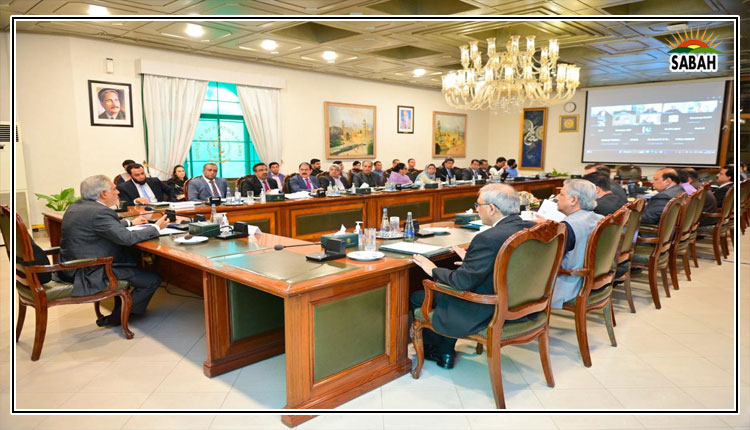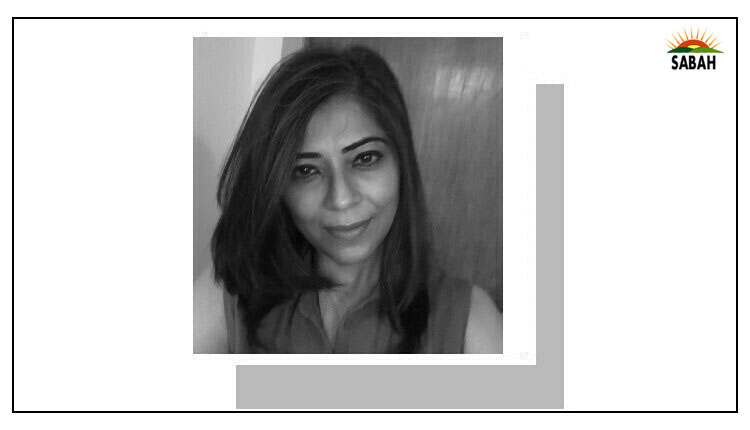Enter the deputy PM …. Arifa Noor
SUNDAY is a day of rest but not for the hardworking people running the government of Pakistan. These men, and a few women, never rest. This Sunday was no different, as the prime minister was busy with an official trip overseas. But foreign shores didn’t distract him from the pending work in Islamabad and he managed to issue a notification declaring current Foreign Minister Ishaq Dar as deputy prime minister.
Predictably, the notification managed to set off a storm of discussion among the other hardworking race — the journalists and commentators who fill the weekend slots.
Has Dar made a comeback? Does it mean Nawaz Sharif is now planning to reassert himself? What does this mean for Shehbaz Sharif? The questions and the ensuing discussions will probably fill the airwaves for some days to come, providing more television opportunities for Rana Sanaullah and Javed Latif, just in case journalists were losing interest and requests to them for interviews were reducing.
In other words, Dar’s appointment is going to add more fuel to the whispers that the ruling party is facing inner strife. The story of friction within the party is not new — it has perhaps been around from the time the party first fell into disfavour with the then establishment circa 2016. While the intensity of these ‘reported’ differences went up and down, the election and its aftermath seem to have added to the fault lines within.
Dar’s appointment will add more fuel to whispers that the PML-N is facing inner strife.
This is not simply due to the innumerable interviews of Javed Latif, who had time for them when he was minister without a portfolio and has even more hours to spare now that he is neither a minister nor an MNA. Rana Sanaullah seems to be similarly bored.
Their pronouncements against each other and other matters such as why N ‘lost’ the election (according to Latif, it was the same big, bad establishment that also cost the PTI the election, which is what the latter party alleges) have sparked an entire debate as to what their interviews indicate about the party.
Both these gentlemen are seen to be part of the Nawaz Sharif, as opposed to the Shehbaz Sharif, camp, and their talk was also seen to be at the former’s behest, raising questions about the elections.
But this was not the only sign of trouble within the House of Sharif; others pointed to Nawaz Sharif’s absence from parliament and Islamabad where Sharif junior rules the roost. His only appearances took place alongside Maryam Nawaz — attending meetings of the Punjab cabinet, visiting people and taking trips to check naan and roti prices. It was hard not to conclude that he was deliberately keeping a distance from the government in Islamabad, and was invested only in his daughter’s future.
But the ‘success’ in by-elections seems to have caused a change of heart. In interviews, those in the ‘Nawaz Sharif camp’ have begun to speak in favour of a dialogue with the PTI. It is important to remember here that when businessman Arif Habib made this suggestion to Shehbaz Sharif, the response was not too forthcoming.
Along with this came a party meeting after which Rana Sanaullah announced that Nawaz Sharif would be asked to take over the party — again — as the cases against him had been concluded and there was no legal bar on him holding a party position. And now Dar’s promotion. No one will believe the PML-N version that it is business as usual; if it was, he would have been made deputy PM from day one. Clearly, something has changed since for this step to have been taken and there are shifts in the balance of power within.
Second, his promotion shows the Sharif family, despite all that has happened, has not understood the change in the country they continue to rule or why they are losing support. They are unable to understand the growing sentiment against the domination of families and dynasties. Why else would they first decide to award both the chief minister and prime minister’s posts to themselves and now make another family member the deputy PM?
Third, this is going to add another level of uncertainty to a rickety government because it will increase rumours of a feud within the family and strengthen the perception that Shehbaz Sharif is a weak prime minister. The latter was already battling views that his mandate is a managed one and that the establishment is in charge; key decisions are being made through the SIFC while some of his cabinet members are not of his choice.
Indeed, arguments that the deputy prime minister’s post is a ceremonial one are irrelevant here. After all, Ishaq Dar’s proximity to Nawaz Sharif means he has access and influence few can rival.
It is worth noting that he was able to replace a finance minister while sitting in self-imposed exile in London; so to assume that a ceremonial government post will not lead to much is perhaps not correct. Since then, we have also heard Mohammad Zubair’s account of how privatisation was delayed by Ishaq Dar while he was finance minister during the earlier PML- N term.
As it is, he has been overseeing the outsourcing of the airports while being foreign minister. So evidently, with his elevation, his role in economic affairs is far from over. While he may not be able to influence or overrule the SIFC’s decision-making, if decisions are being made at the political level of government, the foreign minister/ deputy PM will be there, representing the views and interests of the Punjab chapter of the family.
Indeed, within the possibilities of the role he could play in economic and financial affairs and the impact this decision will have on the space in which Shehbaz Sharif is operating as PM and the face of the PML-N in Islamabad, it is instructive that, other than party and government spokespersons, no one thinks this is a random decision with no consequences. The ride is about to get a bit more bumpy.
The writer is a journalist.
Courtesy Dawn, April 30th, 2024


